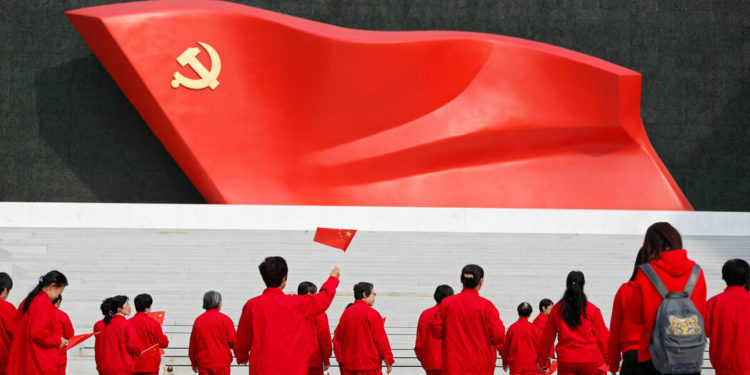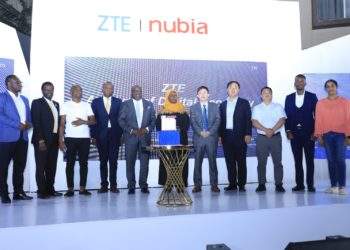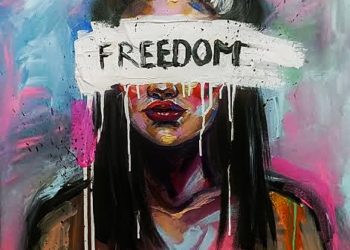By THE NEW YORK TIMES
To get the economy back on track, China is trying to champion its domestic companies and reassure entrepreneurs that it’s ready for business.
Its efforts are running into a problem: an online army of Chinese nationalists who have taken it upon themselves to punish perceived insults to the country — including from some of China’s leading business figures.
In recent weeks, bloggers who usually rail against the United States have turned on China’s richest man, calling him unpatriotic, and encouraged boycotts that have wiped out billions from his beverage company’s market value. When fellow tycoons defended him, they were attacked as well, by users whose profiles featured photos of the Chinese flag.
As the fervor spread, social media users also hounded Huawei, the crown jewel of China’s tech industry, accusing it of secretly admiring Japan. Others accused a prestigious university of being too cozy with the United States, and demanded the works of a Nobel-winning Chinese author be removed from circulation for purportedly smearing national heroes.
The state has often encouraged such nationalist crusaders, deploying them to drum up support, deflect foreign criticism or distract from crises. Social media users have suggested that the coronavirus originated in an American lab, and staged boycotts against Western companies that criticized China’s human rights record. Self-styled patriotic influencers have made careers out of criticizing foreign countries.
But the encouragement has also pushed many users to try and outdo one another in nationalist outrage — to an extent that can sometimes escape the government’s control or undercut its broader aims. As the recent attacks grew, some state media outlets issued rare rebukes of the nationalist bloggers. Hu Xijin, a former Communist Party newspaper editor who is perhaps the most well-known online nationalist, also condemned the craze. Yet the barrage persisted.
“While nationalism and populism are quite useful tools, they are pretty dangerous as well,” said Yaoyao Dai, a professor at the University of North Carolina at Charlotte who has studied Chinese populism. “The government needs and wants to be the one that shapes the narrative. They cannot just give everyone this power to shape the narrative of who are ‘the people’ and who is ‘the enemy.’”
This time, many of the grievances seem to be fueled by a groundswell of discontent over China’s economic malaise, potentially making it harder for the authorities to turn the faucet of public anger off.
Some of those calling for boycotts of the drinks company, for instance, suggested it was focused more on profits than on the public good, amid high youth unemployment and disaffection with harsh corporate culture.
The attacks on the beverage company, Nongfu Spring, and its billionaire owner, Zhong Shanshan, began last month after the death of the founder of a rival drinks company called Wahaha.
The Wahaha founder, Zong Qinghou, had built a reputation for not firing workers, and offering housing and child care subsidies. After his death, some users began comparing Mr. Zong with Mr. Zhong of Nongfu, and asking why the latter did not show the same generosity.
But the attacks soon spiraled far beyond his business practices. Critics pointed out that Mr. Zhong’s eldest son held American citizenship, and declared the family traitors. Others said that the design of one of Nongfu’s drinks seemed to evoke Japanese imagery — a cardinal sin to nationalists, given China’s fraught history with Japan.
Still others seized on the fact that Nongfu had overseas shareholders, accusing it of enriching foreigners at the expense of China.
“In this current environment, when most people can’t make much money, they’ll be in a bad place, and they’ll resent the rich,” Rebecca Fei, a 35-year-old resident of Hangzhou, the eastern Chinese city where both drinks companies are headquartered, said in an interview. Ms. Fei had published social media posts praising Wahaha’s work culture and criticizing Nongfu Spring.
Around the world, anti-elite sentiments often go hand-in-hand with economic downturns. But China’s tightly controlled internet incentivizes users to blend that sentiment with aggressive nationalism. With Chinese censors deeming more and more topics off-limits, pro-China sentiment is one of the few reliably “safe” areas remaining.
The allure of making incendiary clickbait may be even stronger now amid the shortage of well-paying jobs, said Kun He, a postdoctoral researcher at the University of Groningen in the Netherlands who studies China’s online populism. Some bloggers “take advantage of this populist sentiment to attract traffic for their own profit,” he said.
Online streamers began posting videos of themselves pouring Nongfu Spring water down the toilet. Several convenience stores declared that they would no longer stock its products. Nongfu’s stock value has fallen 8 percent since last month.
As the frenzy built, a state-owned newspaper in Hangzhou published an opinion piece calling on the public to treat entrepreneurs as “one of our own,” though it did not mention Nongfu Spring by name. The propaganda department of Zhejiang Province, of which Hangzhou is the capital, denounced bloggers who “damaged the normal economic order.”
The warnings had little effect. Other entrepreneurs who defended Nongfu found themselves attacked, too. Li Guoqing, the co-founder of Dangdang — once called China’s version of Amazon — urged social media users in a video to let businesspeople get back to business, only for commenters to point out that his son, too, was an American citizen. Mr. Li later deleted his video.
Nationalist furors often subside as quickly as they arise, and Mr. Zhong is still China’s richest person, with a net worth of over $60 billion. But the mania against Nongfu made clear how easily nationalists can descend upon targets other than those selected by the authorities.
Several more campaigns have recently taken aim at other storied institutions and figures, in spite of official efforts to dissuade them.
Some social media users have fumed that some graduates of Tsinghua University in Beijing, routinely ranked the country’s best, go on to study in the United States. They pledged not to send their own children there, even after a social media account tied to People’s Daily, the Communist Party mouthpiece, criticized the attacks as ill-founded.
Critics also rounded on Huawei, the tech giant, after a Weibo user posted that the company was suspicious, because it had named a line of chips Kirin, another unacceptable Japanese reference. The post, now deleted, appeared to be sarcastic. But as it went viral, some users earnestly took up the call to arms.
Then there was a man named Wu Wanzheng, who announced on Weibo last month that he had sued Mo Yan, the only Chinese national to win a Nobel in literature. Mr. Wu — whose social media username is Mao Xinghuo, in a nod to Mao Zedong — claimed that Mr. Mo had smeared the military and insulted Mao in his novels, which often depict the turbulence of 20th-century China. He requested that Mr. Mo’s books be removed from circulation.
Mr. Wu’s suit has not been taken up by a court, and his account on Douyin, the Chinese version of TikTok, was recently banned. Hashtags about his lawsuit, after trending on Weibo, were censored.
Still, the authorities were wielding a relatively light touch, compared to how vigorously they have worked to silence any criticisms of Beijing’s economic policies. Attacks on Mr. Mo have continued, including by Mr. Wu, who declined an interview request, and other bloggers like Zhao Junsheng, a 67-year-old retired state company worker.
Mr. Zhao, whose videos attacking Mr. Mo have racked up more than 15,000 likes, admitted he had not read any of his novels. But he was disgusted by the idea that people might criticize Mao-era China, when workers had been taken care of. That time was just as important as China’s modern-day market economy, he said in an interview.
“I think they must have foreign forces behind them,” he said.








Discussion about this post